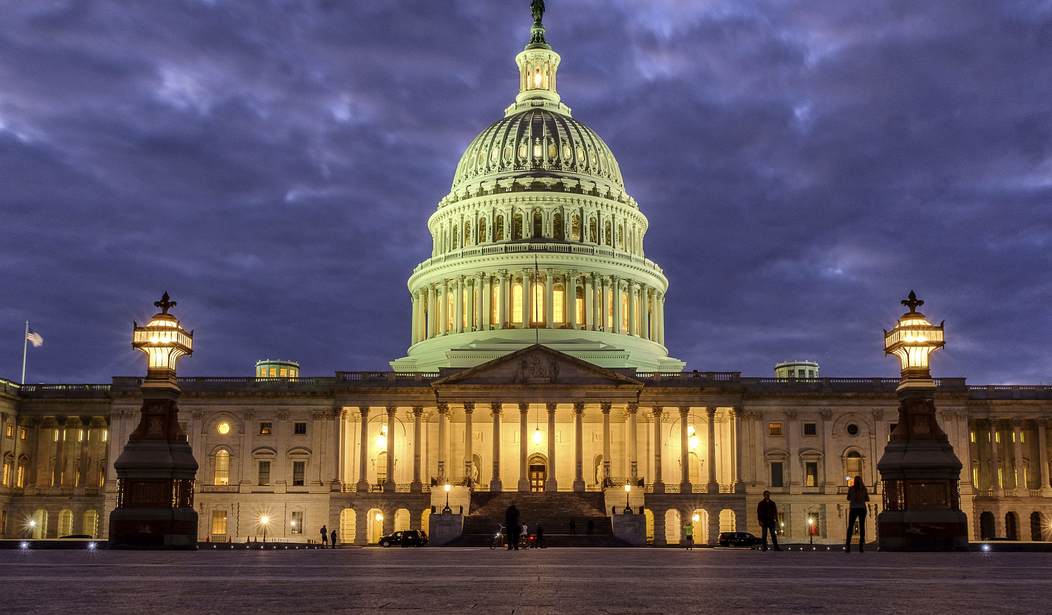First of two parts
Toxic partisanship in the United States is not a new problem. In 1796, President George Washington was so distressed by the way America was splitting into two political factions — the Democratic-Republicans led by Thomas Jefferson, and the Federalists of Alexander Hamilton — that he devoted much of his Farewell Address to warning his countrymen, "in the most solemn manner, against the baneful effects of the spirit of party." He acknowledged that it was natural for people with common interests to organize into competing groups. But passionate loyalty to political parties too often fueled "the most horrid enormities" — vengefulness, dissension, and repression.
His admonition had little effect. The 1800 presidential election, in which Jefferson successfully challenged the Federalist incumbent, John Adams, was extraordinarily bitter. Federalists were enraged at losing the White House, and there was real fear that party hatred would ignite into violence at Jefferson's inauguration. Fortunately, the transfer of the White House was peaceful, and Jefferson's address is remembered for his famous plea for unity: "We are all Republicans. We are all Federalists."
But unity doesn't stand a chance when American politics are dominated by an unhinged two-party duopoly. Since the 1860s, nearly all elected officials have been either Democrats or Republicans, and their rivalry has lately grown more poisonous and hateful than at any time in memory. Much of this viciousness is driven by factors Washington and Jefferson could never have imagined. Among them: the immensity of the government and of the stakes involved in controlling it, the power of the Internet to inflame widespread rage and contempt, and the disordered personality of Donald Trump along with the derangement it arouses in his opponents.
The worsening malice and meanness of American politics are clearly not deepening public affection for the two major parties. The number of registered independents is higher than it has ever been in the modern era. Among the 31 states where voter registration includes a party affiliation, 28 percent of voters have officially designated themselves as independent (or "unenrolled"). In at least nine states, a plurality of voters is registered as independent — i.e., there are more independents than either Republicans or Democrats. In Alaska and Massachusetts, independents are an outright majority of all voters.
Recommended
In opinion surveys, meanwhile, an even larger share of Americans identify with neither party. According to the Pew Research Center, 38 percent of US adults call themselves independents, significantly more than those who are Democrats (31 percent) or Republicans (26 percent). Quite a few voters, it would seem, share George Washington's aversion to partisanship.
So why aren't more independents elected to office?
On Election Day, most independents do what the rest of America does: They vote for Democrats or Republicans. What choice do they have? Sometimes there's a third-party option — in four presidential elections, I have voted Libertarian — but in general it's impossible to escape the two-party duopoly. The last independent to mount a serious presidential race was Ross Perot, who died on Tuesday at 89. In 1992, Perot pulled nearly one-fifth of the vote, a stunning achievement for an outsider not linked to either party.
It wasn't enough to carry even one state, however. And in any case, it was a one-off. When Perot ran again in 1996, his share of the vote dropped to just 8 percent. No independent has mounted a credible race for president since then. (Former Starbucks CEO Howard Schultz said in January that he was "seriously considering" doing so, but has since taken a "detour" from politics to undergo back surgery). If anything is a given in this uncertain world, it is that the winner of the 2020 presidential election will be a Republican or Democrat. Given the immense logistical challenges posed by a run for the White House, it is all but impossible that anyone could do it without the resources and manpower of a national political party.
But even if there is no realistic prospect of weakening the two-party grip on the presidency, why should it be so hard for independents to get elected to other offices?
On July 4, veteran Michigan congressman Justin Amash announced that he was leaving the Republican Party to which he had long belonged, and would henceforth represent his constituents as an independent. He condemned the "partisan death spiral" in which American politics is caught, and urged others to join him in "rejecting the partisan loyalties and rhetoric that divide and dehumanize us."
With that move, Amash became the only one of the House of Representatives' 435 members who does not belong to a political party. The "people's house" was designed to reflect the public's loyalties, preferences, and passions. In a nation where more than 1 of every 4 registered voters explicitly rejects a party affiliation, there ought to be scores of independents serving in the House. In our era, once-imposing barriers to election — racial, physical, religious, sexual, marital — have been swept aside. Yet it's still virtually unheard-of for candidates who don't belong to a political party to win public office.
Toxic partisanship sickens a society, George Washington warned. "It agitates the community" and "kindles the animosity of one part against another." Tens of millions of Americans agree with him. If only that were reflected in the men and women they elect
(Jeff Jacoby is a columnist for The Boston Globe).
























Join the conversation as a VIP Member